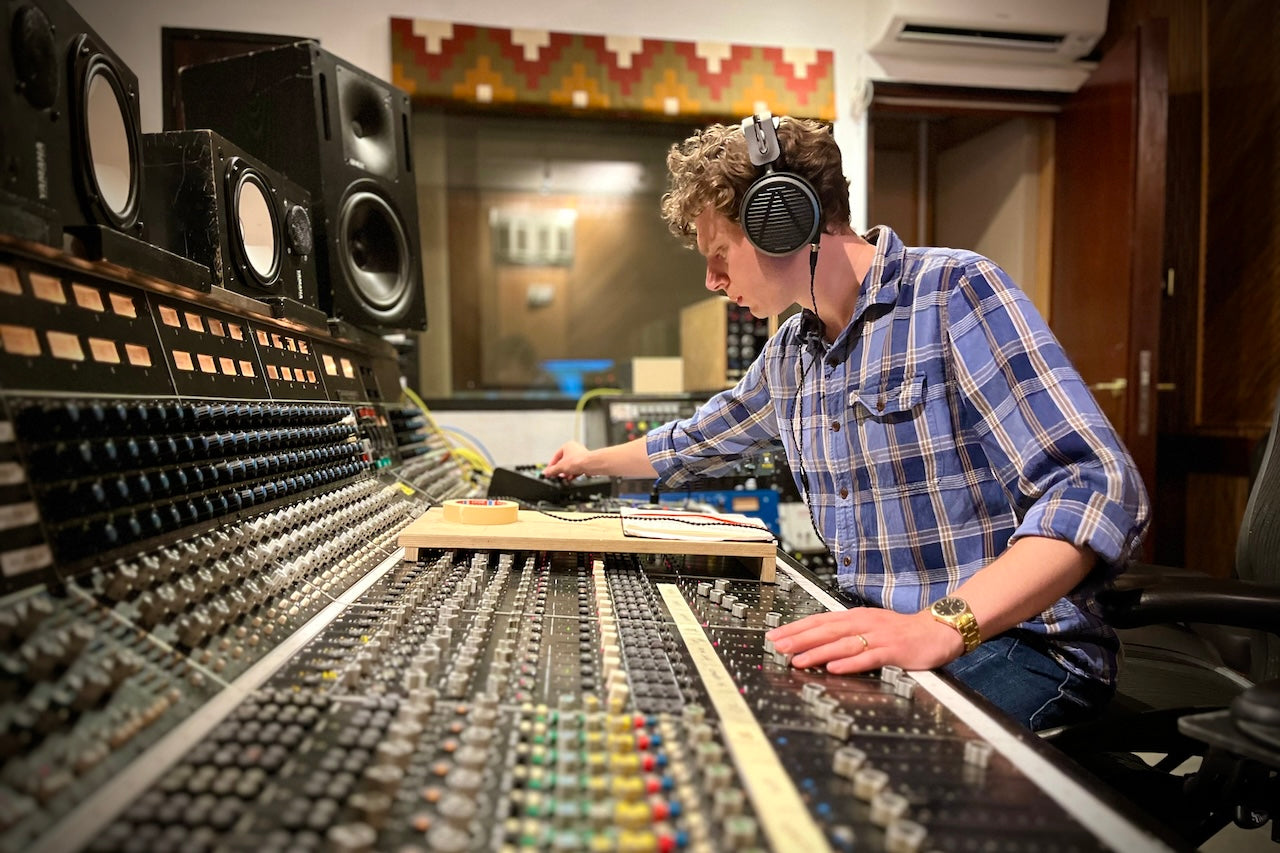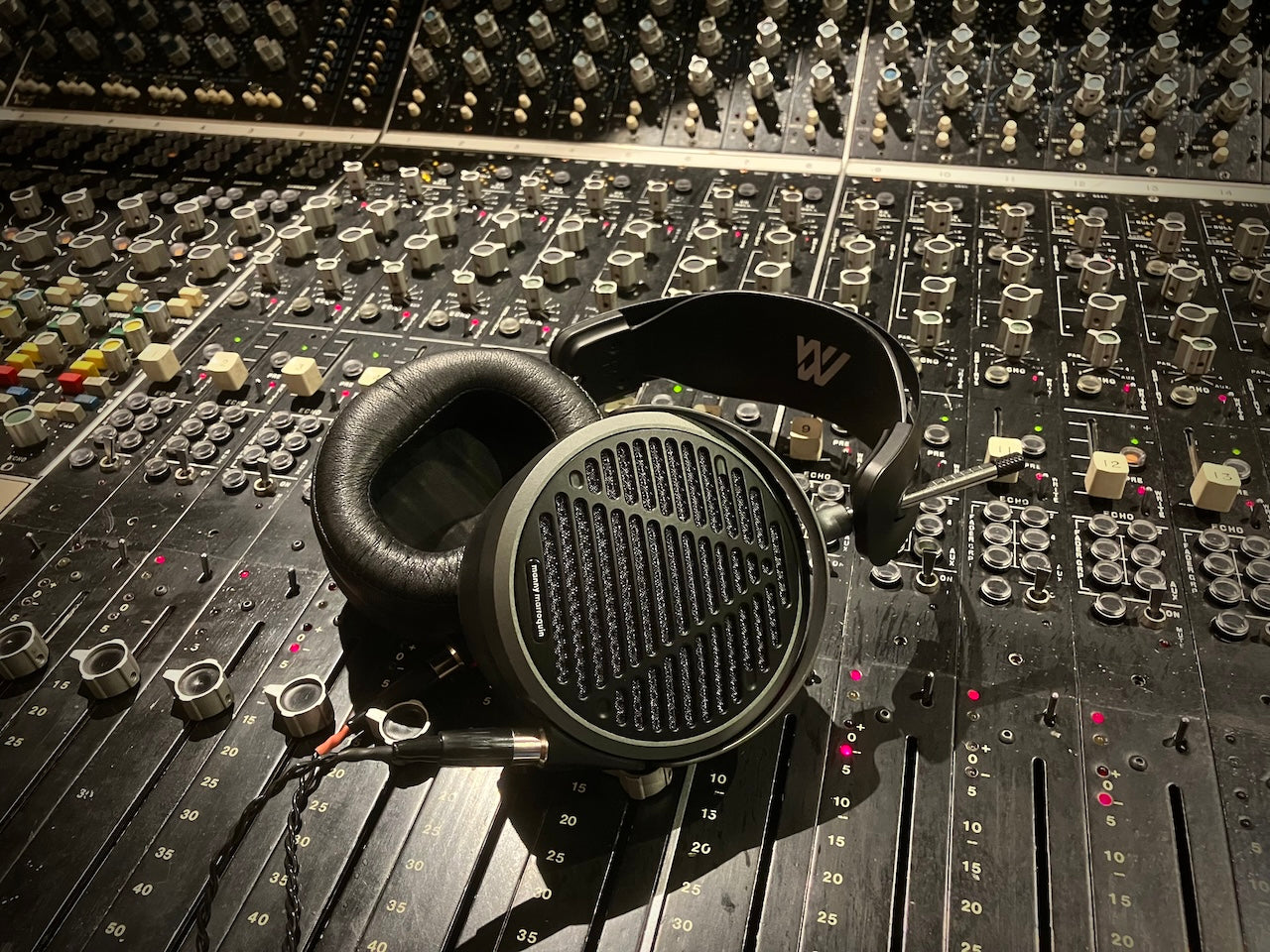
Audeze Artists 2025 Grammy Winners

The Audeze Artists of Metropolis Studios

Andrew Scheps has spent over 35 years in the industry and is a 3x Grammy award winning Mixer/Producer/Engineer/Label Owner/Software Developer whose credits are ridiculously long and star-studded.

Lee Ranaldo, musician, visual artist and writer, co-founded Sonic Youth in 1981. He played in Glenn Branca’s early ensembles and symphonies, 1980-1984, and has been active both in New York and internationally for over forty years as a composer, performer, collaborator and producer, also exhibiting visual art at galleries and museums worldwide, and publishing several books of journals, poetry, and writings on music.
February 24, 2024
Will Purton is a recording engineer, mixer and producer based at RAK Studios, London UK. He loves nothing more than recording a full live band using mic choice and placement to print everything to tape sounding as finished as possible right from the outset. Will tries to bring a musical sensibility and sense of fun to every session.

Liam Gallagher - C’mon You Know (recording engineer)
Van Morrison - Roll With The Punches (mix engineer)
Ganavya - Like The Sky I've Been Too Quiet (recording engineer)
Judi Jackson - My American Songbook (recording and mix engineer)
Chelsea Carmichael - The River Doesn’t Like Strangers (recording engineer)
Con & Kwake - Eyes In The Tower (recording engineer)
Recently I’ve often found that I’ll start a project at RAK, and then continue working on it through any overdubs, editing and the final mix - more so than simply being the mix engineer on a track which I hadn’t worked on before that point. I actually prefer it that way; it’s nice to be able to commit sounds ‘to tape’ early in the process, knowing that you’ll be the one to continue that vision all the way through to the finishing line. It means I can be quite bold with mic choice, printing analog processing and so on whilst tracking, which I find makes the mixing much quicker and easier - you’ve already started to build the sonic soundstage and don’t have to construct one from the ground up later on.
I started out playing guitar and bass in bands, and I was classically trained in piano from quite a young age. Growing up, I was obsessed with classic rock - Led Zeppelin, Pink Floyd and so on. I didn’t realise it at the time, but those records really do sound amazing even today. Nowadays I find myself enjoying much more of a variety of genres and eras of music, which I think is partly due to being exposed to lots of different projects whilst working my way up the ranks in large recording studios. I’d say my music preference now is just for anything well written, well performed and well recorded.
When I was starting out in studios I was obsessed with an engineer called Phill Brown, who had recorded the later Talk Talk albums which just sound incredible. He has a book which I read cover to cover several times, and made me fall in love with the idea of the studio. I was actually lucky enough to assist him on a couple of sessions - he is one of those engineers who just has golden ears, and can get any instrument sounding better than you could imagine just with mic choice and placement. Thankfully, it turns out Phill is a complete gentleman - he is one hero I'm very glad to have met. Roger Nicholls and Bruce Swedien are also huge influences, in both cases for their attention to detail and commitment to getting the sounds right at source, and never fixing it in the mix.
I used to get frustrated at the start of my career when I’d open up a Pro Tools session which had been sounding great at the studio the day before, only to find it not sounding nearly as good anywhere else. The issue was not learning what the studio speakers were telling me properly - and not compensating for any brightness, dullness, or extra reverb tail in the control room. Having a good set of headphones with you can really help to cut out any external factors when working somewhere you’re not 100% confident of the monitoring - they become the baseline of your whole understanding of the sonics. When I’m working somewhere new, or somewhere I haven’t been for a while, the first thing I’ll do is open up a few reference tracks and make sure I know what the control room sounds like, referencing back and forth between the speakers and headphones. Since I started doing that, the number of nasty surprises has hugely diminished.
Recently I’ve actually been trying to refocus my attention more on the performance and arrangement of the music than on the tools used to capture it - it’s fun to nerd out but only if it doesn’t distract you from the music! That said, there are certain pieces of gear which help me get to the sound I had in my head faster and more reliably than others. The desert island mic has to be a Neumann U67. I also love 414’s (EB’s especially), Coles 4038’s and Beyer m160’s - in fact, I find myself reaching for ribbon mics a lot more often than I used to. For outboard, 1176’s just sound so good on almost everything. I have a Universal Audio 6176 preamp/compressor unit which I’ve been using a lot whilst mixing for some valve warmth - I’ve had that thing for maybe 10 years now, it was my first proper piece of recording gear. Manley Vari-Mu’s are fantastic, as are Neve pre’s, GML 8200’s, and EAR 660’s. But over and above everything else, you need good monitoring. I’m lucky to have a really great-sounding room with some good speakers, but often I find myself doing mix tweaks on the move or at home without access to that. That’s when really good headphones come into their own. If you can be confident in what you’re hearing, then you can start to make confident decisions about everything earlier in the signal chain.
Right back when I decided I’d like to work in studios, we had a family friend who was a music manager. I went to chat to him and his advice to me was “don’t do it!” At the time I kind of resented that, and forged ahead anyway, and I’m glad I did! But now, 10+ years into a career in music, I can see where he was coming from. It’s just so hard to break into this world, and there are so few opportunities available. When you do make it in, it’s hard for it not to take over your life, you have to be so hardworking and dedicated. There are no guarantees, no secure income, and almost no work/life balance. That said, when it’s good there’s nothing in the world that’s better. So before you start out, be really sure that this is what you want to spend your life doing. There are easier ways to make a living which don’t demand as much of your time. If you are sure, then you just have to persevere. Send out CV’s to all the studios, knock on the door and try to meet the studio manager. Rinse and repeat. It may take months or years before you get your shot, so you also have to make sure you’re ready to smash it when it comes along. I studied a sound recording course at university which helped get my technical understanding to where it needed to be, and introduced me to people I still collaborate with today. Immerse yourself in recording magazines, blogs, YouTube channels; go out to gigs and meet people, start working with musicians recording material with whatever gear you have. One day your chance will come along.
I’ve always had a trusty set of closed-back headphones with me for tracking, but when I tried mixing on them I was never happy with the results. I wasn’t able to make confident decisions when EQ’ing or balancing, which was a shame because sometimes you do need good monitoring with you when you’re away from home for a last minute mix. A good set of open-backed professional grade headphones now come with me to every recording session, and I have them with me for every mix. Sometimes the monitoring in the control rooms of studios can leave you unsure of exactly how something sounds, especially when working somewhere new - so having something like the MM-500’s with you to be able to cross-check with a known quantity is invaluable. They’re a great tool to reference to even when mixing in a great room, but when you’re not they become indispensable.
I can honestly say that the MM-500's have become my main reference point, even when mixing in my well treated room on speakers I know really well. They are so revealing of the tonality of a mix that EQ has become a total breeze - it's obvious right away what is needed, if anything. They manage to be detailed and unwaveringly true, but not unflattering. I find myself boosting frequencies I have always cut, because I can actually hear for the first time what's going on without worrying about if the room or speakers are misleading me.
I've used these headphones extensively on all my recent projects; recording overdubs for an album with Shabaka Hutchings, tracking and mixing the score for an upcoming feature film called Locked In, and mixing various tracks for Benjamin Scheuer.
